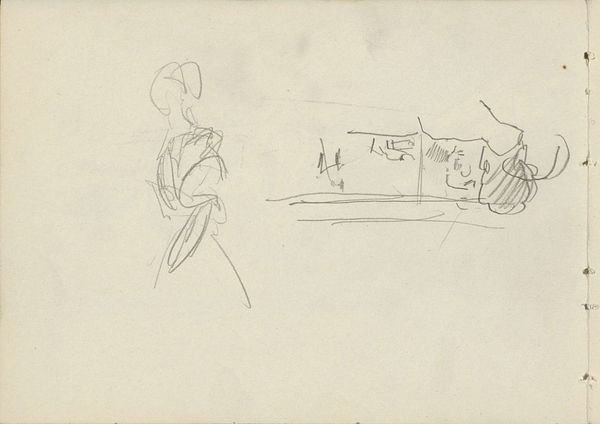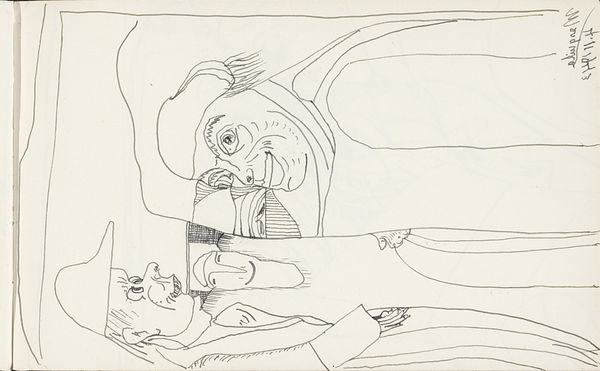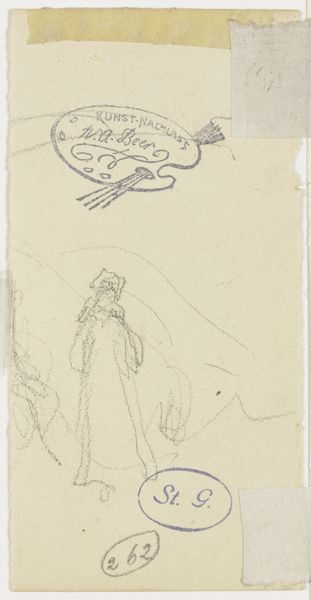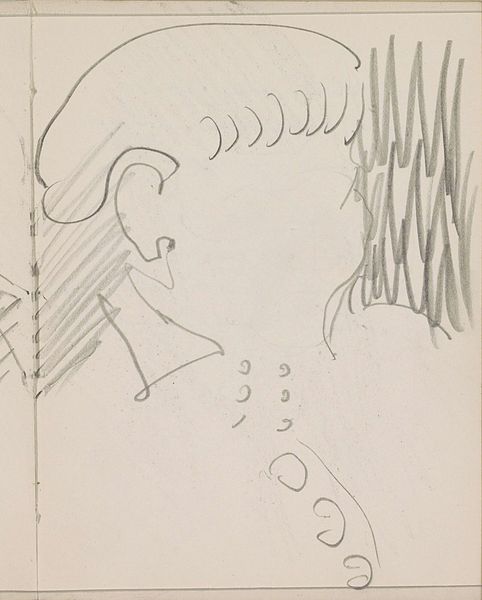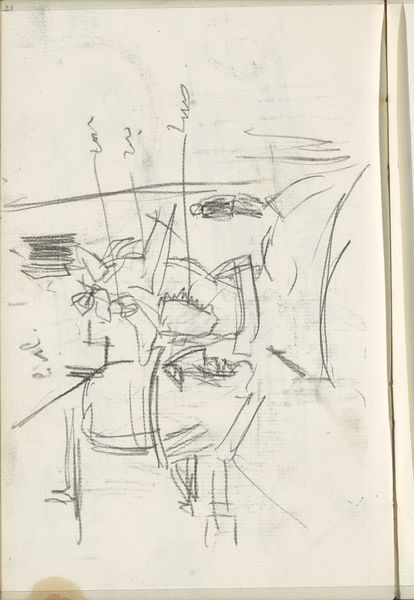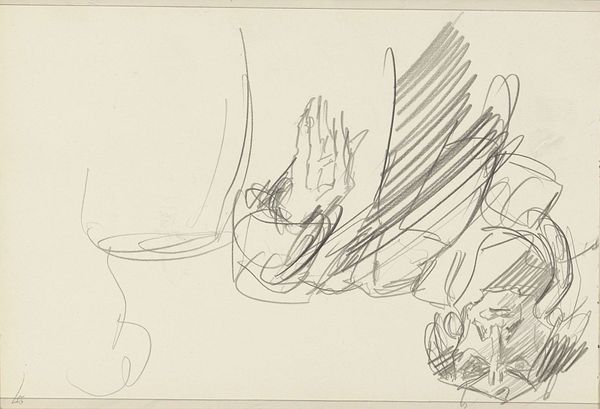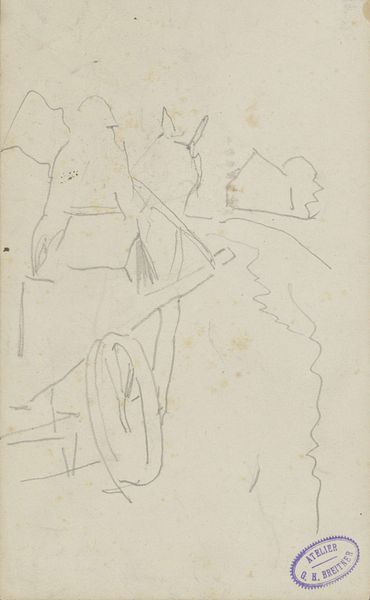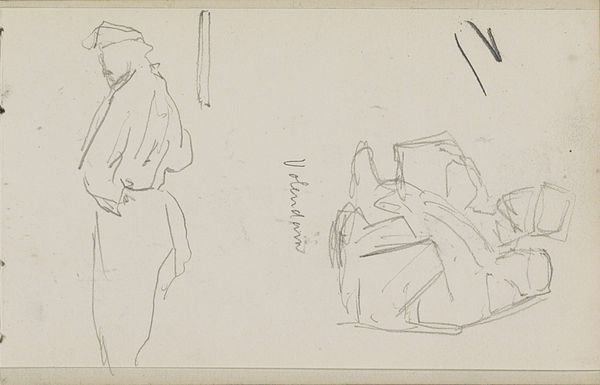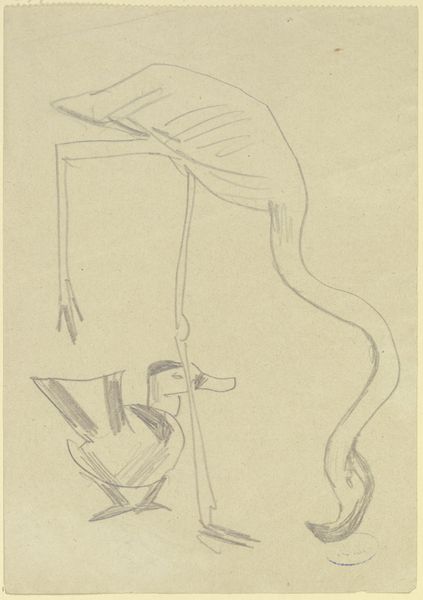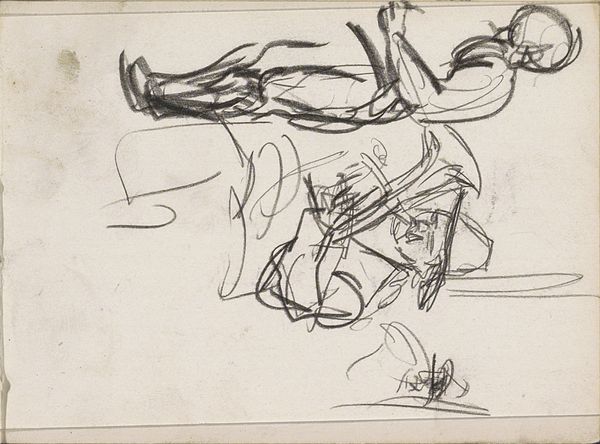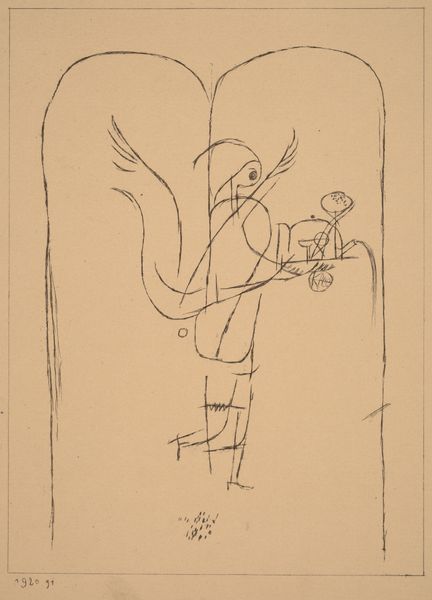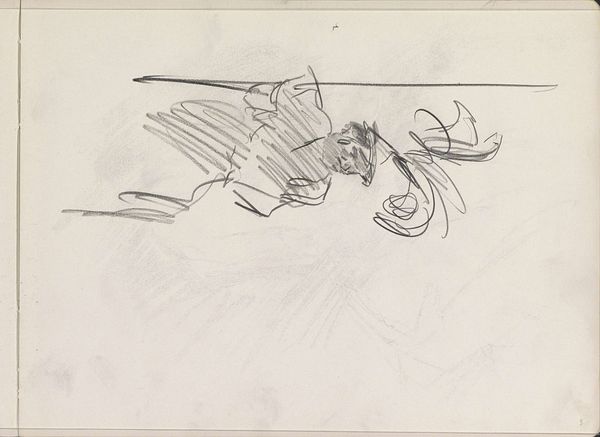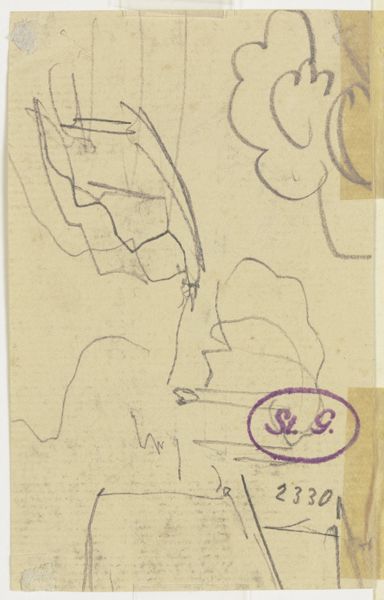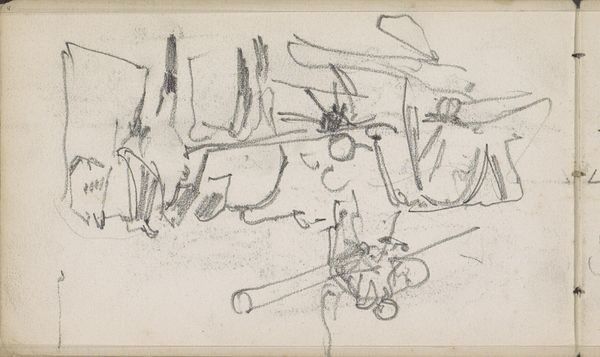
drawing, graphic-art, paper, ink, pen
#
drawing
#
graphic-art
#
comic strip sketch
#
art-nouveau
#
quirky sketch
#
pen sketch
#
paper
#
personal sketchbook
#
ink
#
ink drawing experimentation
#
pen-ink sketch
#
pen work
#
sketchbook drawing
#
pen
#
sketchbook art
#
initial sketch
Copyright: Rijks Museum: Open Domain
Curator: This is "Ontwerp voor drukwerk," a design for print work created by Carel Adolph Lion Cachet in 1896. The piece, housed here at the Rijksmuseum, employs ink and pen on paper to bring a certain sketch to life. Editor: There's a raw, immediate energy about this sketch. The lines are quick, almost frenetic in places. I am struck by the materiality, a sense of how quickly the pen must have moved across the page to get these impressions. Curator: Cachet, working during the Art Nouveau period, engages in dialogues about national identity within broader European contexts. It suggests that this was created in response to emerging nationalist rhetoric present at the time. How might visual culture contribute to these discourses? Editor: It also highlights a crucial part of the process itself—the labor. Here, we're confronted with the immediacy of creation, seeing the artist wrestle with form and layout. How might this have become available and to whom? I notice the materials would be readily available, unlike expensive bronzes. Curator: Right, the medium informs its message, which in this case brings us to a reflection on gender roles and symbolic language used throughout Dutch society. The artist is using an icon, not just creating a design, thus layering sociopolitical statements. Editor: But beyond the symbolic content, I see an exploration of different graphic marks. How that bird’s head might feel quite different to us in lithography, woodcut, or even embroidered in cloth, versus how we see it here directly made with a pen. Curator: Indeed, understanding the cultural contexts informs our perception of these design choices. And it’s an opportunity for a dialogue regarding access, the making and remaking, and how we grapple with gender and race. Editor: Exactly. I found myself thinking about the initial material gestures, but the piece leaves me appreciating the unseen craft involved in realizing and circulating this message, the print work in relation to our history.
Comments
No comments
Be the first to comment and join the conversation on the ultimate creative platform.
